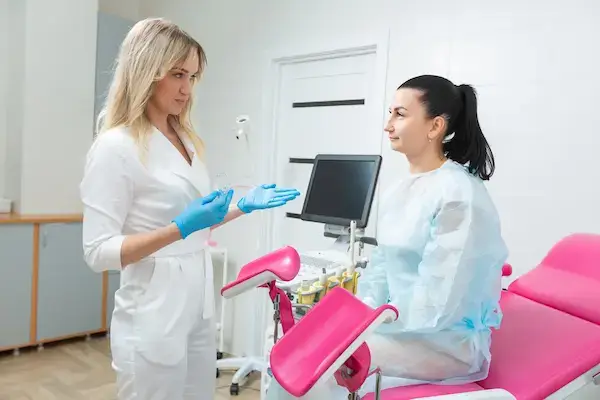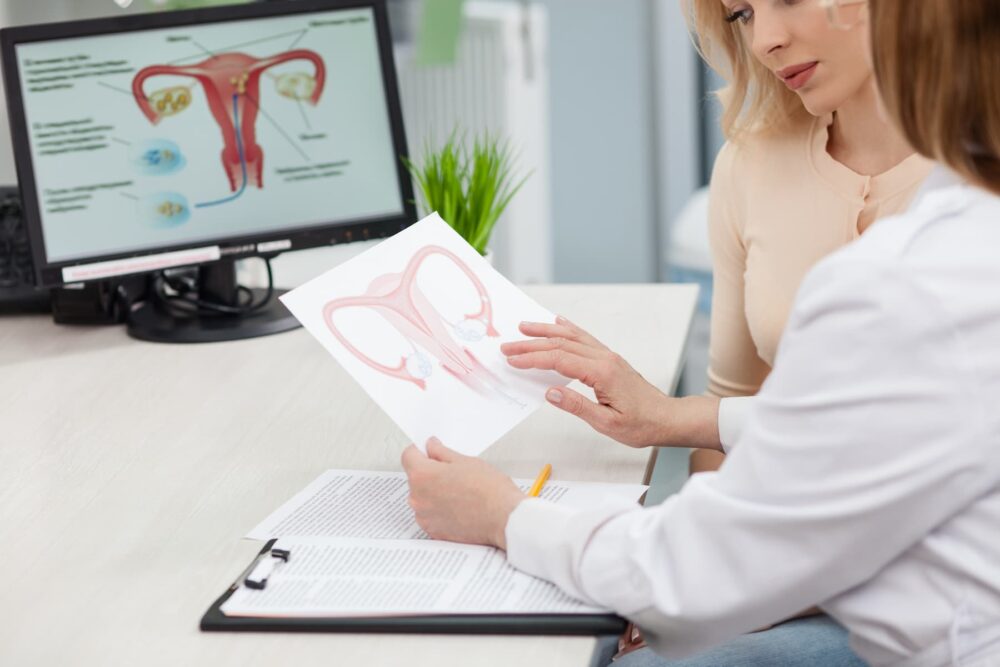Menopause
Menopause is the natural point in life when a woman permanently stops having periods. It is diagnosed after 12 consecutive months without menstruation, usually occurring between ages 45 and 55. The average age in the UK is 51 but of course, no two women are the same. It marks the end of reproductive function and is associated with a decline in oestrogen levels.
Menopause is usually a gradual process this involves the following:
- Perimenopause: the period from the beginning of menopausal symptoms.
- Post-menopause: defined when there have been no periods for twelve months or immediately after surgical removal of the ovaries.
Perimenopause refers to the transitional years leading up to menopause. It is characterised by fluctuating hormone levels, irregular periods, and a range of physical and emotional symptoms. This stage can begin several years before menopause and varies widely between individuals.
Around 1 in 100 women become menopausal before the age of 40. This is known as premature ovarian insufficiency (POI), which can be caused by surgery, chemotherapy, radiotherapy, genetic, auto-immune or unknown reasons.
Our Menopause Service
We offer GP and consultant-led menopause clinics with BMS and FRSH registered menopause specialists and nutritional therapists.
We treat each patient as an individual taking a holistic, evidence-based approach that addresses lifestyle, nutrition, hormonal and non-hormonal treatment options, and symptom management strategies. Whether you're navigating perimenopause or the postmenopausal years, we aim to provide empathetic, expert-led care that empowers you to make informed decisions about your wellbeing.
Your consultation will include practical advice, treatment recommendations, and long-term support for managing your health during this life stage.
Book your Menopause appointment online
Menopause affects women very differently, make those later stages lighter with our menopausal care package.
Menopause Treatments & HRT
Hormone Replacement Therapy (HRT) is a common treatment that replaces declining levels of oestrogen (and sometimes progesterone). For most women, HRT is a safe and effective way to manage symptoms and reduce risks of osteoporosis and cardiovascular disease. Risks and benefits should be reviewed individually.
HRT is one option to treat menopause symptopms, however some women choose not to take this and these are some of the alternatives available. All of these can be discussed with our menopause specialist during your consultation.
- Lifestyle changes (diet, exercise, stress management)
- Cognitive behavioural therapy (CBT)
- Non-hormonal medications for hot flushes or mood including newer non-hormonal medications for hot flushes and night sweats.
- Vaginal moisturisers and lubricants
- Vaginal oestrogen treatments
Menopause Healthcheck Package
Designed to help you manage through the menopause
Menopause Nutrition Package
A 12 week program with our Nutritional Therapist

Your Menopause Consultation
During your 45 minute specialist menopause consultation, you will have the opportunity to discuss your symptoms, medical history, and any concerns you may have in a supportive and confidential environment.
The consultation will take a holistic approach, considering not just physical symptoms, but also emotional wellbeing, lifestyle factors, and personal goals.
Care will be fully individualised to suit your unique needs, preferences, and health profile, with options such as hormone replacement therapy (HRT), non-hormonal treatments, and lifestyle advice discussed in detail.
Together, we will create a tailored plan to help you manage your menopause journey with confidence and clarity.
We offer both GP and consultant-led menopause care, with BMS registered menopause specialists.
GP Referrals
GP referral letters are not needed unless you are claiming your visit on insurance and your insurer requires one. However, GP referral letters are helpful because they provide your information and history so if you do have one please bring it with you to your appointment.
Other related conditions and treatments
Hormone replacement therapy (HRT)
Menopause Nutrition
Identify potential imbalances that may be contributing to the peri/menopause-related health problems and preventing you from reaching optimal health and peak performance
Bleeding After Menopause
Whilst not uncommon and often caused by minor issues, bleeding after menopause is an important ‘red flag’ symptom and you should always see you doctor or...








